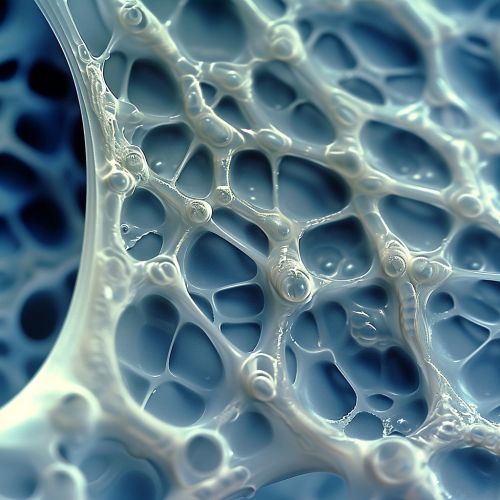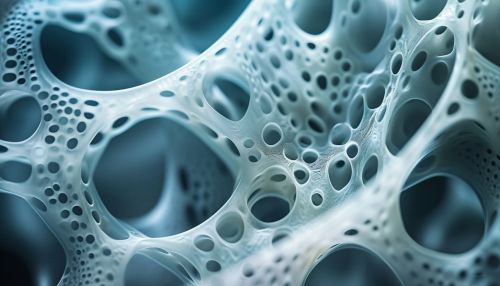Soft Matter
Introduction
Soft matter, sometimes referred to as condensed matter, is a subfield of physics that deals with materials that can be easily deformed by thermal fluctuations or small stresses. These materials include, but are not limited to, liquid crystals, polymers, colloids, foams, gels, granular materials, and a variety of biological materials.


Characteristics of Soft Matter
The defining characteristic of soft matter is its ability to undergo large deformations under small external stresses. This is due to the weak interactions between the constituent particles, which are typically much weaker than the covalent bonds found in hard matter. This results in a low elastic modulus, meaning that soft matter is easily deformed.
Soft matter also exhibits a number of unique properties that set it apart from hard matter. These include the ability to self-assemble into complex structures, the presence of mesoscopic length scales (scales between the microscopic and macroscopic), and the ability to exhibit both solid and liquid behavior, a phenomenon known as rheology.
Types of Soft Matter
There are many different types of soft matter, each with its own unique properties and behaviors.
Polymers
Polymers are long, chain-like molecules that can be found in a variety of materials, from plastics to proteins. They exhibit a wide range of behaviors, from elastic to viscous, depending on their molecular structure and the conditions under which they are observed.
Liquid Crystals
Liquid crystals are materials that exhibit properties of both liquids and crystals. They can flow like a liquid, but their molecules are arranged in a crystalline structure. This gives them unique optical properties, which are exploited in liquid crystal displays (LCDs).
Colloids
Colloids are suspensions of small particles in a fluid. The particles can be solid, liquid, or even gas, and the fluid can be any liquid or gas. Colloids exhibit a wide range of behaviors, from gel-like to liquid, depending on the size and concentration of the particles.
Foams and Emulsions
Foams and emulsions are systems of gas bubbles or liquid droplets dispersed in another liquid. They can exhibit a wide range of behaviors, from liquid to solid, depending on the size and concentration of the bubbles or droplets.
Biological Materials
Many biological materials, such as cells, tissues, and certain types of biomolecules, can be considered soft matter. These materials exhibit a wide range of behaviors, from liquid to solid, and can self-assemble into complex structures.
Applications of Soft Matter
Soft matter has a wide range of applications in various fields, from materials science to biology and medicine. For example, polymers are used in the manufacture of plastics, textiles, and many other materials. Liquid crystals are used in LCDs, and colloids are used in paints, inks, and many other products. Foams and emulsions are used in food products, cosmetics, and many other applications. Finally, understanding the properties of biological soft matter can lead to advances in medicine and biotechnology.
